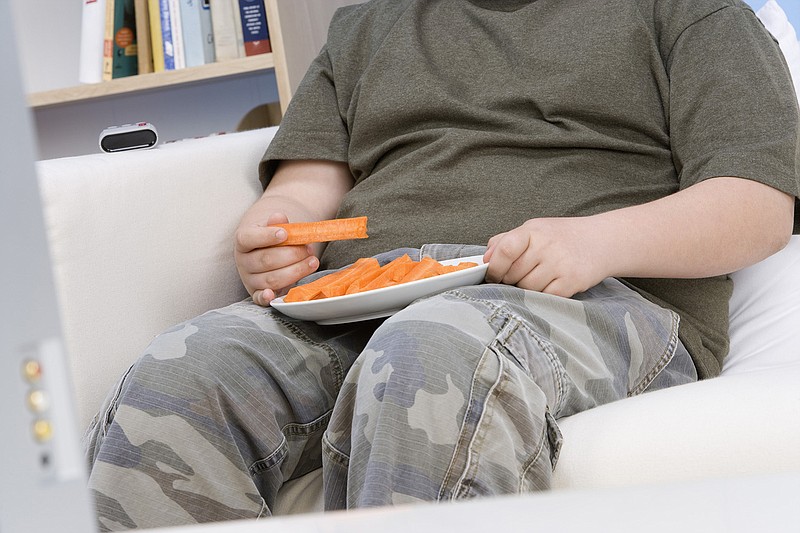After years of bad news about how fat Tennessee children have become, a new report says at least one group of kids is less obese than before.
A report issued last month by the federal Centers for Disease Control and Prevention said fewer Tennessee children ages 2 through 4 who participated in the Women, Infants and Children program (WIC) were obese, compared to four years earlier.
In 2014, the year the report was based on, some 14.9 percent of Tennessee kids in the program were obese, compared to 16 percent in 2010.
While the decline is not large, it is big news for health officials.
"For many years the direction that these statistics have been going is up, up, up," said Richard Hamberg, interim president of the Trust for America's Health, a nonprofit group that promotes public health.
In recent years, federal and state officials have begun to examine whether government programs are promoting healthy eating, particularly for children. More than half of all infants born in the U.S. receive benefits under the WIC program, according to the U.S. Department of Agriculture, which administers the program.
The Head Start and school lunch programs also are putting more attention on healthy eating, Hamberg said.
"For many years, school lunch and breakfast programs used whatever food was available, and a lot of it was deep-fried," Hamberg said.
Reaching young children and their parents can have a long-term impact.
"The lessons learned in childhood, later on become personal responsibilities," he said. "It is a lot easier to do it in early childhood than to reverse it later on."
But a slight decline in obesity among very young children does not mean that Tennessee - and the rest of America - doesn't still have a weight problem.
Among adults, only 11 percent were considered overweight in 1990, while nearly 34 percent are currently obese.
Doctors say even if young kids don't become obese, they face challenges to keep the weight off as they grow older.
"This is an encouraging trend, however, children are completely vulnerable and dependent on their parents for access to healthy foods and to get outside and play and exercise," said pediatrician Dr. Judy Anderson.
Some parents just don't have the time or money to help their children participate in sports or find other ways to exercise, Anderson said, while others are not willing to make the sacrifice themselves to stop buying unhealthy foods.
"I'm pretty sure Johnny is not in charge of grocery shopping," Anderson said. "But so many of the parents are themselves dependent on the drinks and cookies and chips."
"Many of us a generation ago were under the impression that kids can get away with eating things adults can't," nutritionist Pam Kelle said. "Cokes and candy after school - if kids want snacks after school, let them have it."
But now that more children are facing issues with diabetes, heart disease and cholesterol, more parents are realizing they need to pay attention to what their kids eat.
"It is important that parents realize their children are watching them eat," Kelle said. "Having parents support good eating habits to show the way they want their children to eat is really how this works."
Anderson noted that both Tennessee and Georgia are above the national average for obesity.
"It's possible to undo this, but it is going to take time and persistence, and we need to start with the children," she said. "Once they put the weight on, it is hard to get the weight off."
Contact staff writer Steve Johnson at 423-757-6673, sjohnson@timesfreepress.com, on Twitter @stevejohnsonTFP, and on Facebook, www.facebook.com/noogahealth.
